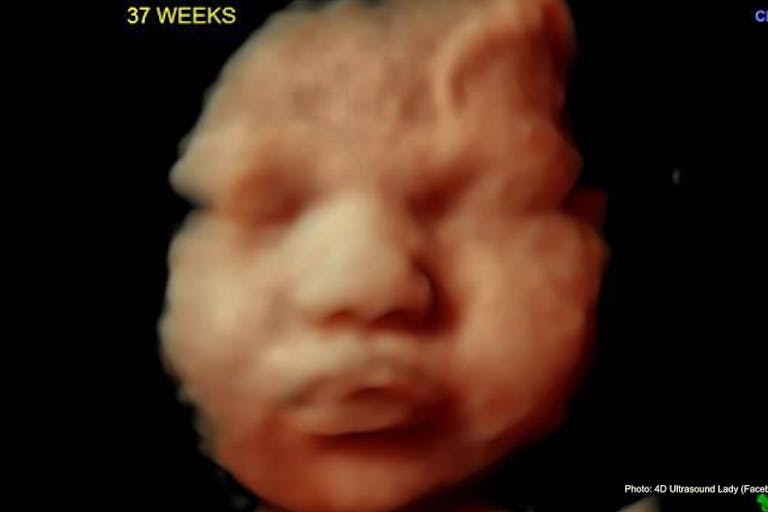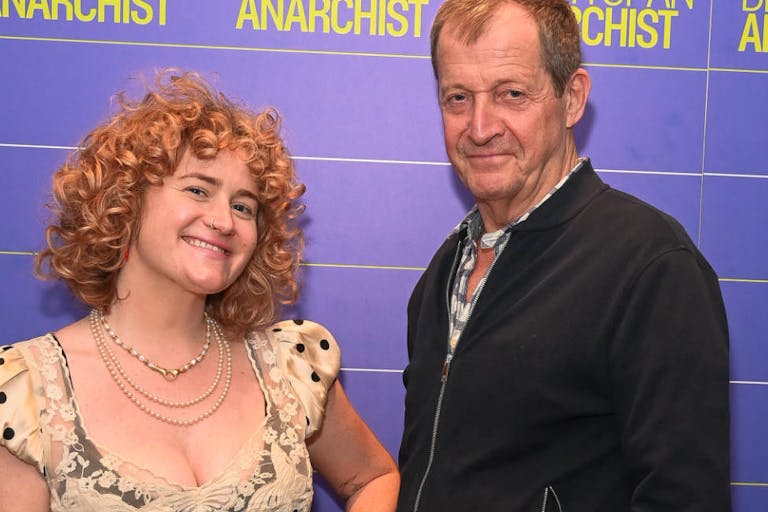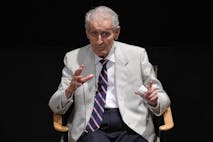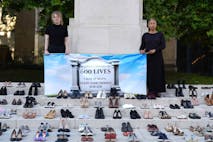
Prosecutors drop charges against Polish doctor who aborted baby in ninth month
Nancy Flanders
·
Comedian says she wasn’t prepared for the grief and guilt that followed her abortion
British comedian, author, and actor Grace Campbell thought having an abortion was going to be easy and was completely unprepared for the pain she felt afterwards. In an essay written for the Guardian, Campbell explained how she was never warned about what truly to expect, and how difficult it has been to marry her pro-abortion beliefs with the pain her abortion caused her.
Campbell wrote that, due to a desire to “please a stranger in the moment,” she agreed to have sex without using a condom, and became pregnant. Unsurprisingly, that decision led to “consequences that I had to deal with alone.” When she told her friends, she was confused at her own reaction:
“What do you think you’re going to do?” asked Anna. I didn’t know. Confusion overwhelmed me. I’d always imagined I wouldn’t think twice about getting an abortion. I’m Grace Campbell, I like staying out until 5am, not paying my parking tickets on time and sneaking vapes into cinemas. I’ve never thought about having a child. I’ve been too busy behaving like one. But now, at 29, in what felt like my last gasp of young adulthood, the words, “I’ll have an abortion,” didn’t slip off my tongue.
Ultimately, she had to decide what she wanted to do, and opted for the abortion, reasoning that it would amount to just taking a few days off of work and then going back to her normal life. Under United Kingdom (UK) law, women have to provide a reason for the abortion to their doctors, and Campbell thought this would be a good opportunity for humor.
“I thought, if I can make the doctor laugh, then my abortion will be OK. ‘Well,’ I said to him, ‘I am a comedian. And the man who got me pregnant is a musician and I just think that I should spare the world another nepo-baby,'” she recalled. “He didn’t laugh. Instead he gave me a pill.”
The abortionist also instructed her to take another pill later, but Campbell said she was grossly unprepared for what to expect; she was told to expect some cramping and bleeding for a few days, and then everything would be over. Like so many other women have experienced, the reality of a chemical abortion was much more extreme.

“What he didn’t warn me was that I might bleed for a lot longer than that. In fact, for weeks and weeks to come every time I would go to the toilet I’d see chunks of bloody tissue. He also didn’t warn me I might feel depression like I’ve never experienced before,” she said, adding:
The doctor showed me the foetus on the screen, gave me a pill, told me some basic facts, but he did not prepare me for what was about to come. That I wouldn’t be able to look in the mirror, or at pictures of myself, for months, because I would totally dissociate from my body in the hope that I would feel further away from my reality. That I would feel a pervasive sense of guilt, for letting go of something that was mine. And that then I would feel shame, shame that feeling guilty was in some way a dishonour to the women who fought for my right to be able to have this choice.
What that doctor might never know, but I hope he will now, was that showing me that blob on a screen would provide a photographic memory for a grief I didn’t know I could feel. A grief for something I never knew, but something I know I would have loved very much. And that every time that image would flash into my head for months to come, I’d burst into tears like a child who’d tripped and wanted their mum.
It’s not unusual for women to experience depression and emotional trauma after an abortion. What makes Campbell’s feelings even more sad, however, is that as an abortion advocate, she felt she couldn’t discuss them publicly and felt ashamed of her experience… all because she felt she was failing the abortion industry and its defenders. But the reality is, women deserve to know what having an abortion is actually like. It isn’t an easy, empowering experience, despite what women are constantly led to believe.
Campbell repeatedly spoke of feeling she was letting down the women who fought for her “right” to have an abortion by expressing her feelings of guilt. “I was nervous writing this. I’ve worried that in doing so I am letting women down,” she said, and also said that in addition to feeling guilty, she felt shame because her guilt was “dishonour to the women who fought for my right to be able to have this choice.”
Article continues below
Dear Reader,
In 2026, Live Action is heading straight where the battle is fiercest: college campuses.
We have a bold initiative to establish 100 Live Action campus chapters within the next year, and your partnership will make it a success!
Your support today will help train and equip young leaders, bring Live Action’s educational content into academic environments, host on-campus events and debates, and empower students to challenge the pro-abortion status quo with truth and compassion.
Invest in pro-life grassroots outreach and cultural formation with your DOUBLED year-end gift!
Yet women weren’t the ones who fought for legal abortion; in fact, feminist leaders largely opposed it. It was men who were behind the drive for legal abortion.
Sue Ellen Browder, a feminist and former writer for Cosmopolitan magazine, has explained how the modern feminist movement was subverted by pro-abortion men, whereas early feminist leaders were openly pro-life.
Part of the catalyst for abortion to become entwined with the feminist movement was that women were facing frequent injustices and civil rights violations, as recently as the 1960s and 1970s. “Women were fired for being pregnant,” Browder explained. “Women in some states could not serve on a jury. A married woman could not get credit in her own name… Women couldn’t go to college in some places… Very few women were doctors or lawyers. Women were shut out of the professions. So, this was a time when women were very concerned about a lot of injustices and they were all pulling together to try to correct those.”
Browder herself was fired when she got pregnant, which oddly, is what led to her job at Cosmopolitan — a magazine that second wave feminist leaders like Betty Friedan dismissed as “quite obscene” and “horrible.”
Bernard Nathanson and Larry Lader, the men who would eventually create NARAL Pro-Choice America, are the ones who pushed for the National Organization for Women (NOW) to include abortion in its “bill of rights.” Lader was even referred to as “the father of the abortion rights movement” by Friedan. In his book, Lader said, “Abortion never became a feminist plank in the United States among the suffragettes or depression radicals. It was ignored, even boycotted by Planned Parenthood women in those days.”
Browder said it was Lader who ultimately was able to convince Friedan.
“These two men, Larry Lader and Bernard Nathanson, had founded this organization [NARAL] and… Lader knew Betty Friedan very well. They were magazine writers together in New York. Larry Lader had graduated from Harvard University. He was fairly independently wealthy… and his greatest passion was to make abortion legal. And he worked on Betty Friedan for years to try to convince her to insert abortion into her list of demands [within the National Organization for Women (NOW)],” she wrote in her book. “We would never had known it was Lader who at last persuaded Betty to insert abortion into NOW’s package of ‘women’s rights’ if it weren’t for the written testimony of a third party who eye-witnessed events as they unfolded behind the scenes.”
That eyewitness was Nathanson, who ultimately renounced the pro-abortion movement and admitted to lying to convince women that legal abortion was needed. “If we’re going to move abortion out of the books and into the streets, we’re going to have to recruit the feminists,” Browder quoted Lader as suggesting. “Friedan has got to put her troops into this thing – while she still has control of them.”
Abortion, according to Lader, would solve problems for women. Instead of being fired for pregnancy, women could have an abortion. Lader used this argument when Friedan was trying to get her bill of rights through Congress, arguing that “… they can say to the businessmen, ‘don’t worry about it guys, she’s on the pill and if the pill fails she have an abortion. So, you’re fine – you can pass all these other rights….’”
Campbell didn’t betray anyone by speaking openly about her abortion experience. If anything, she’s fighting back against the men who pushed for women to sacrifice their bodies for the pleasure of and convenience of men.
Live Action News is pro-life news and commentary from a pro-life perspective.
Contact editor@liveaction.org for questions, corrections, or if you are seeking permission to reprint any Live Action News content.
Guest Articles: To submit a guest article to Live Action News, email editor@liveaction.org with an attached Word document of 800-1000 words. Please also attach any photos relevant to your submission if applicable. If your submission is accepted for publication, you will be notified within three weeks. Guest articles are not compensated (see our Open License Agreement). Thank you for your interest in Live Action News!

Nancy Flanders
·
Pop Culture
Cassy Cooke
·
International
Cassy Cooke
·
Analysis
Cassy Cooke
·
Analysis
Angeline Tan
·
Analysis
Cassy Cooke
·
Politics
Cassy Cooke
·
Politics
Cassy Cooke
·
Pop Culture
Cassy Cooke
·
International
Cassy Cooke
·
Analysis
Cassy Cooke
·